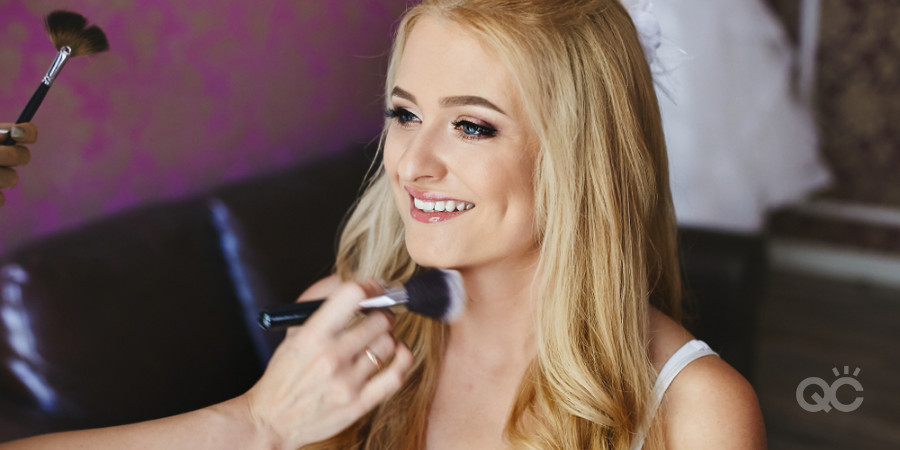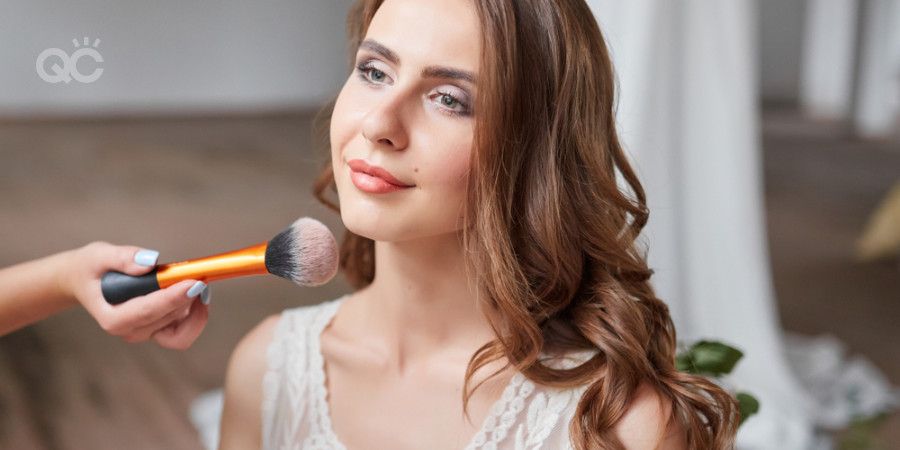While you can find a pretty accurate average pay estimate for a paralegal at a nearby law firm or a nurse at the city hospital, a standard makeup artist salary isn’t so clear cut.
The pay range for makeup artistry is wide. There are a million and one factors to keep track of when figuring out how much you should be earning. If you hold a steady job behind a makeup counter, the wages will typically be stable, but it’ll depend on what brand you’re working for and what region you’re working in. If you’re a freelance makeup artist, you get to set your own rate… but with great power comes great responsibility.
We can sympathize—all these numbers being thrown at you can be confusing! If you’re just starting out as a makeup artist or just moved to a new area and are not sure how much to charge, read on.
We’re sure it wasn’t easy to decide to take a leap of faith and become a freelance makeup artist. But the deliberations don’t stop there. Now, you have to figure out how to price your services competitively! Here are some of the key questions you should ask yourself:
- Are you in an urban or a rural area? If you’re at the center of a big city where all the action is, you’ll likely have a busier schedule and can charge more for your services. That doesn’t mean you can’t find success at all as a makeup artist in a small town—check out this guide!
- How much training do you have? Are you a versatile artist who has taken makeup courses to broaden your services? Remember, if you can show that you’ve invested in yourself, others will see it.
- How long have you been practicing makeup artistry? This also includes the time you’ve spent volunteering your services, or during your training!
- Have you completed any assistantships? Working under a mentor or a celebrity makeup artist who’s been in the business for a long time can give you invaluable experience.
- Are you paying for insurance? As a makeup artist, you may want to purchase insurance. It can protect you as a professional, and it can also protect your kit. As much as we’d like to think otherwise, accidents and theft do happen. Insurance is a good idea, but you’ll have to pay for it out of your own wages.
- What are your overhead costs? Your pricing isn’t just about your skill level (although that is super important!). You also have to consider overhead costs. From something as easily overlooked as the gas you used to drive over to your client’s home to your expensive makeup kit, these things don’t just pay for themselves!
- How many clients do you have on average? If you find that your business is growing, it may be time to raise your prices accordingly.

Putting in the Research
Figuring out what everyone else is charging for makeup services in your area is a step that should not be overlooked. You have to make sure that your services are competitively priced for your area.
Public mentality is a strange beast. If you undercharge, you’re under-valuing yourself, your competitors, and your area’s makeup industry as a whole. You’ll also risk being perceived as being less experienced or less able to do your job—when it isn’t the case! You also don’t want to overprice your services. You risk being unable to bring in new clients, and then won’t be able to make back your overhead costs. Remember—you need to set a makeup artist salary that will let you support yourself!
When you’re researching your competitors, make sure you…
- get your hands on their complete price list;
- note the number of years they’ve been in business/years of experience;
- see if they work from home or at a professional studio;
- markdown if they have any special offers or discounts, and;
- observe the quality of their portfolio.

Pricing Models
When it comes to pricing models for a freelance makeup artist, there are three types: the hourly rate, the fixed-price, or the flat rate.
Hourly
If you plan on pricing your services based on an hourly wage, you’ll always be compensated for your time. If your contract outlines how much you’ll work per hour, you potentially could be paid more than the initial estimate on your contract. Usually you and your clients will work out an estimate of how many hours you’ll be expected to work. If you end up working more hours than anticipated, you’ll still be compensated for them!
A great formula touted by Azzi Williams, QC Makeup Academy tutor, is:
Wage rate (hourly) + (monthly expenses/number of jobs per month)
To get more tips from Azzi herself, visit her website.
Fixed Rate
Having a fixed rate for your services can be a gamble. Sometimes, you’ll end up working fewer hours than anticipated. Other times, you’ll work more. To arrive at your rate, estimate the number of hours you expect to work and multiply it with the wage rate you wish to earn—the formula is identical to the one you’d use for the hourly rate above. But once you quote your client a price of, say, $300 for 4 people, it’s set in stone. Barring any major changes to the scope of the project, you won’t be able to adjust the pricing if you end up working more hours than anticipated.
Flat Rate
If you charge a flat price for the services you do, you need to be an efficient makeup artist! If you’re charging $70 to do a bride’s makeup and $50 per bridesmaid it doesn’t matter how long you’ll take, so long as the job gets done.

Salaries per Industry
Salary estimates are just that—estimates. It’s super difficult finding a general salary estimate for all the different types of jobs in the makeup industry. Obviously if you want to work as a makeup artist for runway models, you can bet that you’ll end up in New York. From there, you can find a better estimate of what you can expect to make.
The Bureau of Labor Statistics (BLS) can’t measure the commission, tips, and gratuities that makeup artists can earn. This is especially the case for those who work freelance. Even more frustrating is a “standard” makeup artist salary can vary widely depending on where you’re located. And these aren’t small salary differences—we’re talking major dollar differences.
For example, the BLS reports that makeup artists in the theatrical and performance industry as of May 2018 have an annual mean wage of $88,090 in Tennessee. Meanwhile, theatrical makeup artists in Texas earn a mean annual wage of just $42,550. The gap between these salaries is huge!
Figuring out your salary is a pain, but rolling up your sleeves to do some digging is well worth the effort.


Love this…it’s so impative to know your worth. You cannot work for free as a professional nor be expected to…Your skillset, education, networking and portfolio all speak to your value.
I love how Nathan stresses the fundamentals and encourages each of us to be our best…I am proud to be #TeamQCMakeupAcademy and #Team #BeautyBuzz
Very informative and great read.